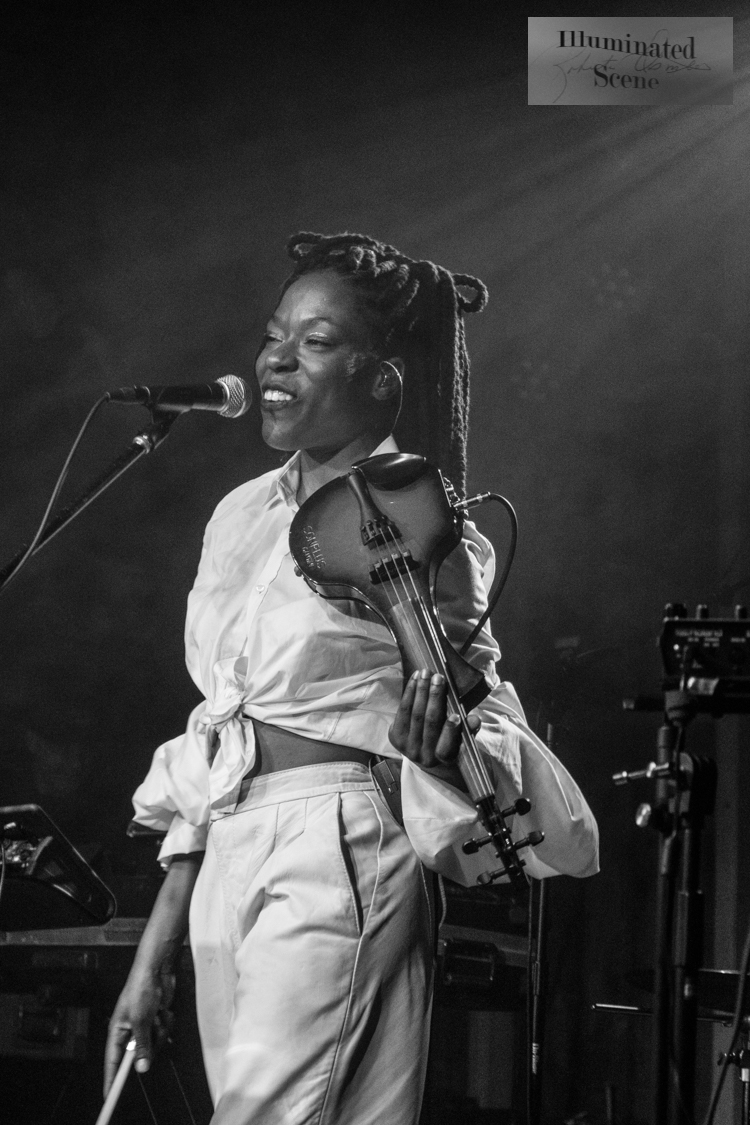Brittney Parks, more familiar to us as Sudan Archives, released her second album on September 9. Entitled Natural Brown Prom Queen, it centrally explores what home means to Parks, through the prism of themes such as femininity, sexuality and race. She gives herself ample room to delve into these aspects of her identity through 18 tracks, which includes several interludes. The record is an exceptionally intimate and textured portrayal of her development as a young woman, whilst honing her distinctive experimental style that fans will be familiar with.
What makes Parks stand out is how she seamlessly blends genres of R&B, rap, electro and Afrofuturism together, largely through her talent as a violinist. Her affection for this instrument comes from a desire “to show the Blackness of the violin”: to demonstrate its playfulness which she has observed in the African context, diametrically opposed to the severity of a western orchestral setting. This dichotomy is reflected in the dual-toned nature of the album: stylistically whimsical whilst simultaneously documenting the maturity of the artist.
Parks’ confidence is immediately palpable with the lead single, ‘Homemaker’, which opens the album. The track has a slow beginning, punctuated by the click of a button. With each click, the song builds, revealing its inspired, nu jazz feel. Parks immediately creates an image of her home in the opening lines as she lyrically beckons the listener to share the space with her: “Won’t you step inside my lovely cottage?”. Parks’ signature strings signal the beginning of the chorus, with its melodic simplicity completing the song’s desired immersive effect. She teases out this duality that manifests throughout the album by satirising the role of homemaker, singing “Don’t you feel at home when I wait on you?”, even though she is in fact describing the physical act of making a home for herself.
‘Homemaker’ is followed by ‘NBPQ (Topless)’, which has a quicker beat and exhibits Parks’ skill as a rapper. The song contains multiple shifts in tone, from rapping sections, to a very dreamy Middle 8 that quickly reverts back to the repeating riff “I’m not average”. This particularly encapsulates the mood of the track which deals with themes of self-acceptance; for Parks this is an embrace of the female, black body. These ideas are revisited in ‘Selfish Soul’, another one of the lead singles which has a particularly feel-good aspect to it conveyed through jaunty violin playing. Embracing female sexuality and desire is another motif for Parks, covered in these two tracks, as well as ‘Freakalizer’, ‘Homesick’ and ‘Milk Me’.
In this way, Parks adopts what could be described as a more masculine tone as she exhibits her necessity to be confrontational. This is particularly striking in ‘OMG BRITT’, which starts in whispers, backed by a trap beat which aids the quick descension into rap. She raps: “Those friends over there say they got your back / Seem to never be there when you need a hand”. Parks does not shy away from her disappointment in others, with this theme revisited in ‘Ciara’, a track that closely examines the breakdown of a female friendship. It is particularly refreshing to see such space dedicated to a non-romantic but otherwise deeply significant relationship.
The album comes full circle as she closes it with the gentle and soulful ‘Yellow Brick Road’, followed by ‘#513’, which is backed by a strong beat and reverb throughout the track. These serve as an homage to the artist’s hometown of Cincinnati, which she has finally been able to accept after feeling alienated from it for so many years: “I’ll never blame my bad luck on nasty Nati”. She also feels able to criticise L.A., “Hollywood will make you hollow”, despite the fact that it is the home that she chose for herself and where her career was able to take flight.
Through her extensive set of skills as an artist, Sudan Archives reveals the central premise of this project; where you feel at home may be subject to change, but it should be underpinned by a desire to create home within yourself.
Image:”Sudan Archives-7” by Robbi O is licensed under CC BY 2.0.

